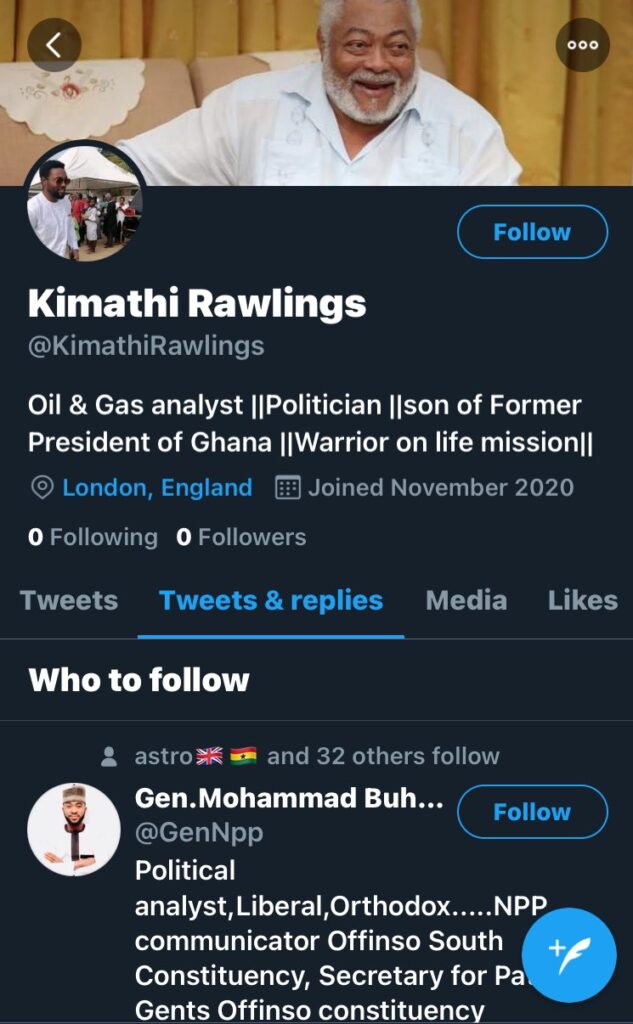It’s fake – Disregard Kimanthi Rawlings twitter account
The office of the late former President Rawlings has asked the general public to disregard a fake twitter account with the handle, @Kimathi Rawlings.
In a statement on Wednesday, his father’s office said the fake account was not created by him.
“The fake Twitter handle @Kimathi Rawlings was not created by Kimathi Agyeman-Rawlings and all the posts on the handle are not attributed to him,” it said.
The family said the matter has been reported to the Cyber Crime Unit of the Ghana Police Criminal Investigations Department.
It also said complaints have been made to the social media company, Twitter.

The family of the late former president has therefore urged members to disregard any publications emanating from the said account.
They also warned persons who dabble in impersonation through the creation of fake accounts to desist from such practice or face the law.
The account popped up almost a week after the death of the former President who died at the Korle Bu Teaching Hospital on Thursday, November 12, 2020.
Online scammers
The impersonation of public figures by scammers is rife as criminals hide behind the anonymity of social media to defraud unsuspecting members of the public.
In May, an Accra Circuit Court granted bail to a Nigerian woman who impersonated some ministers in the Akufo-Addo administration to defraud unsuspecting victims of over GH₵10,000.
The accused person, Vivian Sajida Imran, a trader pleaded not guilty to all the charges levelled against her.
The 31-year old accused person, together with her husband, Prince Joel, who the police were searching for at the time, were charged with eight counts of falsely pretending to be a public officer and defrauding under false pretence.
In April, the accused persons used the names of Information Minister, Kojo Oppong Nkrumah; Foreign Affairs Minister, Shirley Ayorkor Botchway; and the Deputy National Security Minister, Henry Quartey, to create multiple Facebook accounts and pretended to be ministers.
During their online chats and phone calls with the victims, they informed them that they could secure them each with employment at the Tema Oil Refinery, Ghana Gas or COCOBOD.
They further requested the victims to pay various amounts to mobile money accounts for their application forms and interviews.
The monies amounting to about GH₵10, 200 were paid to their mobile money accounts.
A search conducted in the suspect’s rooms revealed six mobile phones, including the three mobile money numbers, used to receive the monies from the victims, the prosecution said.



